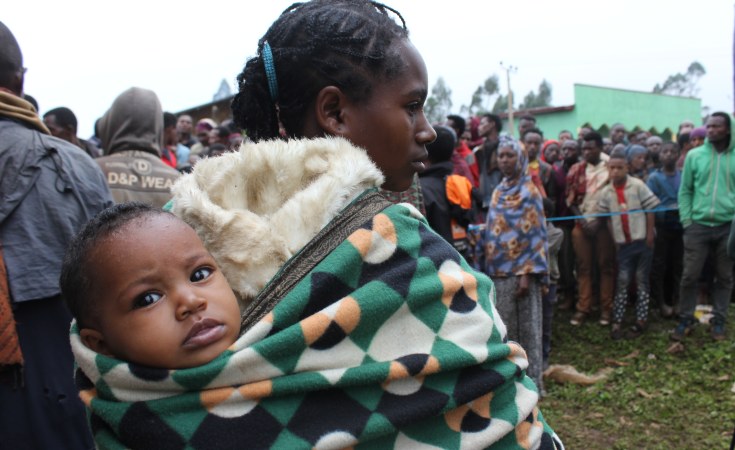Addis Abeba — More than 70,000 internally displaced people sheltered in make shift camps in Abergele and Tsagebej districts in Wag-hemra zone of Amhara regional state for more than two years are suffering from severe hunger and acute diseases, the Wag-hemra zone administration said.
According to the administration, although the war that devastated the northern part of the country has stopped with the peace agreement reached between the federal government and Tigrayan authorities, the IDPs in Abergele and Tsagebej districts haven't been able to return to their homes.
Instead, more people freshly displaced by natural and man-made disasters are entering the shelters, Sibuh Gebeyaw (PhD) administrator of the zone said.
He said in addition to 67,000 IDPs living in the makeshift camps in the two districts of the zone, 4,000 newly displaced people have recently arrived, making the total number IDPs in the zone 71,000, Wag-Hemra communications reported.
On top of these IDPs who according to Sibuh are suffering from hunger and acute diseases, there are thousands of people who have been displaced from their homes but didn't make to the camps and left scattered in the desert for various reasons and are suffering birth related problems, hunger, disease and other man-made and natural disasters.
The administrator added despite happily welcoming the peace agreement, the people of Wag who were the first victims of the two years war have not benefitted as expected.
"What we want is for our people to return to their homes, not persisted suffering while receiving a handful of aid wheat," Sibuh said, urging the government to find a solution as the number of displaced people is increasing every day despite peace agreement.
In June 2022, Addis Standard reported IDPs in three districts of the Wag-Hemra administration zone: Abergele, Zequala, and Tsagebej were facing severe hunger, compounded with drought. Abergele woreda, in particular, was facing malaria, rabies and significant food shortages as well as severe Acute Watery Diarrhea (AWD) outbreak, which has resulted in the death of eight people during the time. AS


